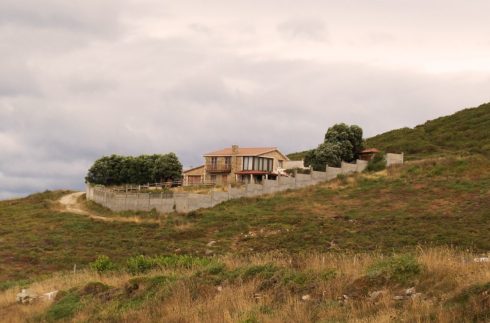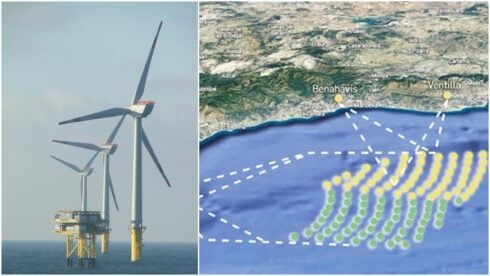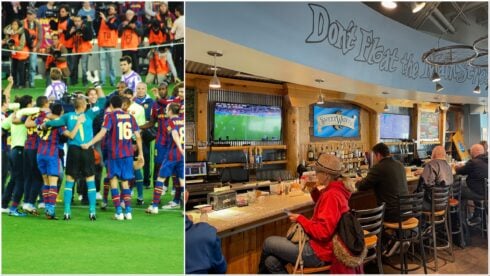MANY people dream of buying in Spain’s beautiful ‘campo’ (countryside) but, if you don’t proceed with caution, your vision of a tranquil life could easily turn into a rural episode of ‘Homes from Hell’.
Some common nightmares encountered by unsuspecting buyers include paperwork irregularities, a lack of water, border disputes, access problems and hostile neighbours.
And that is just the half of them.
Here we take a look at some of the key issues that need to be considered:
Boundaries matter
First and foremost, don’t buy anything that doesn’t have a ‘Nota Simple’ (an official land registry report) which means it isn’t legally registered.
Spain has two different property registration systems, which are the ‘Registro de la Propiedad’ (Property Registry), which is focused on ownership and title, and the ‘Catastro’ or ‘Cadastre’, which shows the geographic location of the property, with a physical description and the boundaries defined. The latter is used to calculate property taxes.
It’s always best if the two property records match up, although it’s quite often not the case, especially with older properties.
However, you don’t want a lot of divergence. In 2015, a law was passed to coordinate the two databases.
“The first thing to do is to check the boundaries of the property – that the description coordinates with the square meters shown on the Castastral,” says architect Julian Dominguez of MDV Construction, in Orgiva, who does a lot of work for estate agencies and buyers in rural Granada.
He recommends buyers request the current certification from the Cadastre with a full description of the property so they can check and compare that there are no differences with the data given in your contract.

Judith Sunley, one buyer who got caught out in the rural Axarquia area of Malaga, insists: “Make sure the vendor or their agent shows you the actual boundary – walking it with you – to avoid disputes with neighbours later.”
She has a cautionary tale having bought a charming rural home in 2013 with her solicitor telling her it wasn’t a problem that the Catastral record was different to the Land Registry.
“But it then led to four years of increasingly acrimonious arguments with our neighbours, who were ‘grabbing’ our land and planting on it.
“Eventually, we took them to court. But it was only a day before our court case that they finally agreed on the boundary in the presence of our respective topographers and lawyers.”
She concluded it was a long and costly process that could have been easily avoided.
Can you build?
If you’re buying land with the idea of restoring a ruin, ensure it’s not just a pipe dream that will simply never happen, leaving you thousands out of pocket.
Don’t assume that because it’s a remote location, planning permission doesn’t apply – it does. Above all, beware of natural parks – meaning areas with environmental protections in place. And remember that planning permission can be expensive in Spain.
“In protected areas, and National Park, it’s virtually impossible to get anything legalised that has not already been done, but possible for existing buildings – although difficult,” says Matthew Wood, of Lanjaron Property. “Natural Park is different, but also difficult.”
He adds: “Buyers should check the legalities of the build. It can be a ‘legal building’ but beware as it may only be a ‘nave’ (storage room or warehouse) and not an actual ‘vivienda’ (home).”

If you’ve bought land with a ‘nave’ on it, local regulations mean you might not be able to amplify the size of the building or reclassify it. And may not even be able to live in it.
Julian Dominguez agrees: “Before buying, make sure you verify what protections there are in the area and whether you can obtain permission from the town hall to build.”
And remember despite the house being legal, if you buy in a natural park, even restoring a swimming pool can be problematic.
One expat Tom Down, who bought near a village in the Sierra Nevada natural park area, explains: “I received a ‘multa’ fine of 1,400 euros for merely a small concrete repair around a damaged swimming pool that was hazardous to children.”
The local town hall architect explained that pools aren’t allowed in the natural park, even though the pool was marked clearly on his ‘escritura’ as a ‘deportiva’ – a swimming pool – and other neighbouring properties have them.
Water – too little or too much
Water is vital to life and is also important to your rural purchase! If you don’t have sufficient water, you might need to have it delivered by tanker, which can be very expensive.
In some locations, the ‘acequias’ (irrigation water courses) may run dry in hotter months – so do your research first.
Just because it says there are water rights in the ‘escritura’, does not mean they exist.
“When I bought my mountain ‘cortijo’, I didn’t get a lawyer to check the water rights,” explains Tom Down. “It turned out that I was only entitled to five minutes of water once a week.”
In contrast, some places can have too much water.
Remember buying at the bottom of a hill means, when it rains, you will get the lot and heavy rain could mean flooding.
There’s also the issue of wastewater and cess pits. These are quite complicated and will depend on whether the property is already legal, or is being legalised, as well as its proximity to an already existing ‘acequia’.
“The exact requirements vary between town halls,” explains Matthew Wood. “So, look them up before proceeding.”
Research the neighbours and neighbourhood
Location, location, location is important. Is your property in the shadow of a mountain for most of the day, meaning it will be dark and inhospitable? Will you need a 4×4 because the access track is liable to degrade and wash away?
Your rural idyll could easily be spoilt by pests – human or otherwise. Do your homework outside the property before committing to buy and always talk to the neighbours.

Mark Stücklin of Spanish Property Insight insists you check if other people believe they have rights concerning the property you’re buying.
“Keep an eye out for ‘suspicious’ signs, such as conspicuous pathways running across your land, lots of spent cartridges or other evidence of hunting on the property, signs of people extracting water from ‘your’ stream etc.
“If you see anything of concern, draw it to your lawyers’ attention.”
Other issues to be aware of are access being allowed along farm tracks, which are under the control of the local farmer – possibly with gates. Make sure they are happy.
And remember if you want mains electricity connected, you may need to pass over your neighbour’s land and therefore require their permission. So keep them onside. The same could apply to water pipes.
You’ll obviously also need to check mobile and internet signals and easy transport links. And check where’s the nearest medical centre?
Employ a good lawyer
Don’t try to buy a property on your own, and never sign documents presented to you directly by the vendor’s side.
“Always seek professional help and don’t take advice from Facebook groups,” insists Matthew Wood. “Use a legal advisor who is fully compliant with rural properties and will visit the property in person. Otherwise, it is impossible to check it properly.”

Francisco Ortega of AF Consulting in Motril, who has 20 years’ conveyancing experience, says: “Clarify all the conditions of the sale with the estate agent. However, don’t believe that you don’t need a lawyer to purchase a property, and they’ll do all the paperwork and legal documentation for you. I have many clients who are fighting legal proceedings in the courts for this reason!
“We’re talking about a very large investment and the consequences of making a mistake can be financially and emotionally catastrophic.”
He adds: “My advice find a lawyer in the area – or at least the region where you’re going to buy. Being ‘on the ground’ locally and knowing the surroundings will ensure your lawyer has greater knowledge of your purchase.”
READ MORE:
- ANALYSIS: The reasons behind Spain’s property boom and what to expect next
- EXCLUSIVE: British expat loses home in southern Spain after 13-year legal battle with builder neighbour over dodgy wall
- Outrage as bulldozers threaten British couple’s retirement home in southern Spain
Click here to read more News from The Olive Press.








